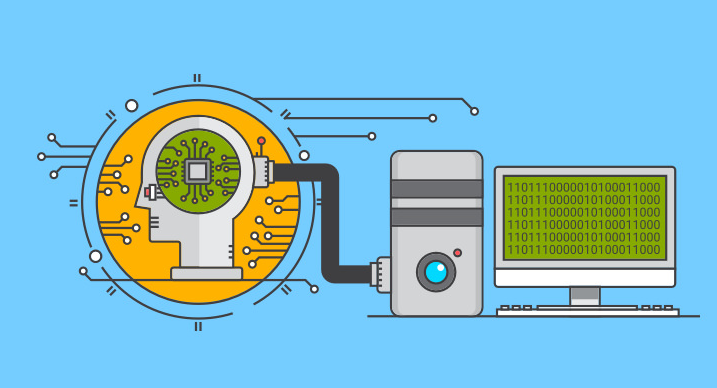Machine Learning is a discipline within the field of AI that consists of letting algorithms discover patterns in data sets. These data can be numbers, words, images, statistics, etc. In simple terms, machine learning is a way for computers to learn from data and make decisions or predictions based on that data.
How Does Machine Learning Work?
The process of machine learning typically involves these steps:
Data Collection: Gathering relevant data
Data collection is the first and probably the most important step in the machine learning process. The quality and quantity of the data you collect will directly affect how well your model performs. This data can come from various sources, such as databases, web scraping, sensors, or manual entry.
Data Preprocessing: Cleaning and organizing the data
Once you have your data, the next step is to preprocess it. Raw data is often messy and could contain missing values, duplicates, or errors. So, we must clean the data to remove or correct these issues. It also includes transforming the data into a format suitable for analysis, such as normalizing numerical values, encoding categorical variables, and splitting the data into training and test sets. This step ensures that your model receives high-quality, consistent input data.
Training: Feeding the data into a machine learning algorithm to learn from it
In the training phase, we use the data to teach the machine learning algorithm. This involves selecting a suitable algorithm and using your training data to fit the model. During training, the algorithm identifies patterns and relationships within the data, adjusting its parameters to minimize errors.
Evaluation: Testing the model to see how well it performs
After training your model, To evaluate its performance and ensure it works well on unseen data. This is done by testing the model on a separate set of data that was not used during training (the test set). Evaluation metrics such as accuracy, precision, recall can help to determine how well the model performs.
Deployment: Using the trained model to make predictions on new data
Once the model’s performance has passed the tests, it’s time to deploy it. Deployment involves integrating the model into a real-world system where it can start making predictions on new, unseen data. This might mean embedding the model into a web application, mobile app, or any other software platform.
Types of Machine Learning
There are three main types of machine learning:
Supervised Learning This provides the computer with labeled data (where the correct answer is already known), and the computer learns to make predictions based on this data.
Unsupervised Learning Here, the computer is given data without any labels and has to find patterns on its own.
Reinforcement Learning: Its objective is for an algorithm to learn from its own experience. Meaning, the computer learns by trying different actions and receiving feedback.
Challenges and Considerations
While ML is powerful, but it comes with challenges, such as:
Data Quality The accuracy of ML models heavily depends on the quality of data. If the data is noisy, incomplete, or biased, the model’s predictions will be unreliable. Data quality issues can arise from various sources, such as human error during data entry, inconsistencies in data collection methods, or the presence of outliers. Ensuring high-quality data involves thorough cleaning, validation, and sometimes even gathering additional data to fill in gaps.
Bias Models can be biased if the training data is biased. Bias in machine learning can lead to unfair or unethical outcomes, particularly when the data reflects existing societal biases. It’s crucial to identify and mitigate bias by using diverse and representative training data and employing techniques to detect and correct for bias in the model.
Ethical Concerns Privacy and ethical implications of using personal data are significant considerations in ML. Collecting and using personal data, can raise concerns about consent and data protection. It’s essential to follow ethical guidelines and legal regulations, such as the General Data Protection Regulation (GDPR) in the EU, which mandates strict data protection and privacy standards. Transparency and accountability in how data is used and ensuring that users have control over their data are critical to maintaining trust.

